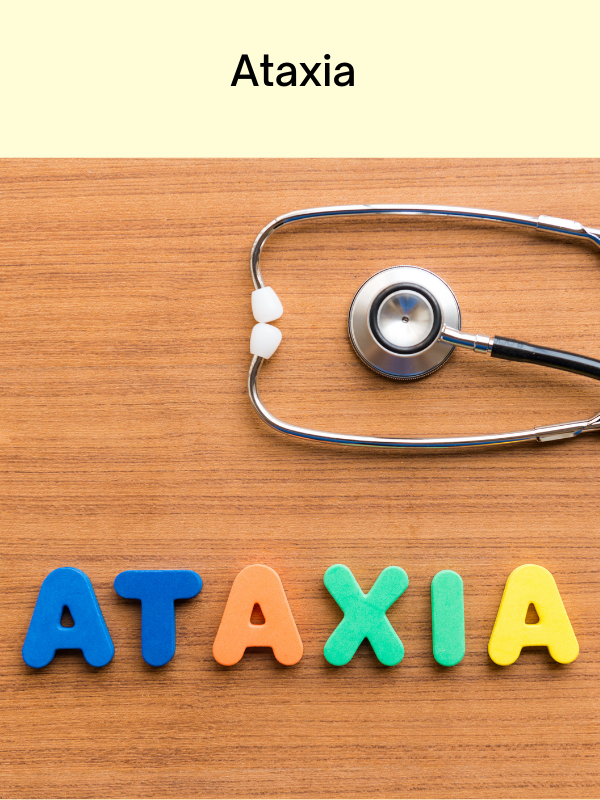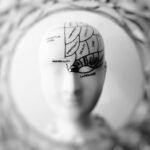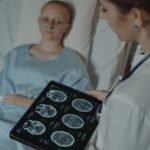Ataxia is a neurological disorder characterized by a lack of voluntary coordination of muscle movements. It can affect various body parts, including the limbs, hands, fingers, speech, and eye movements. Ataxia results from damage or dysfunction in parts of the nervous system that control movement and coordination, such as the cerebellum.
Table of Contents
Types of ataxia
There are several types, including:
- Hereditary Ataxia: This form is caused by genetic mutations and tends to run in families. Examples of hereditary ataxias include Friedreich’s ataxia, spinocerebellar ataxia, and episodic ataxia.
- Acquired Ataxia: This type is typically acquired due to factors like head injury, stroke, multiple sclerosis, brain tumours, alcohol abuse (alcoholic ataxia), certain infections, or toxins.
- Idiopathic Late-Onset Cerebellar Ataxia (ILOCA): This form of ataxia typically occurs in adults with no known cause.
Symptoms and Diagnosis
Symptoms may include problems with balance, coordination difficulties, unsteady gait, tremors, slurred speech, and difficulty with fine motor skills. The severity of ataxia can vary widely from person to person.
Diagnosis involves a thorough medical history, neurological examination, and sometimes genetic testing. While ataxia cannot usually be cured, treatment options may include physical therapy to improve coordination and balance, medications to manage symptoms like tremors, and addressing any underlying causes (e.g., treating an infection or alcohol abuse).
Management and care for individuals with ataxia often require a multidisciplinary approach involving neurologists, occupational therapists, physical therapists, and other healthcare professionals to help improve the individual’s quality of life and independence. Additionally, support groups and resources are available to provide emotional and practical support to individuals with ataxia and their families.. Check this: How does Multiple Sclerosis affect a person’s life?
Ataxia Pictorial Presentation



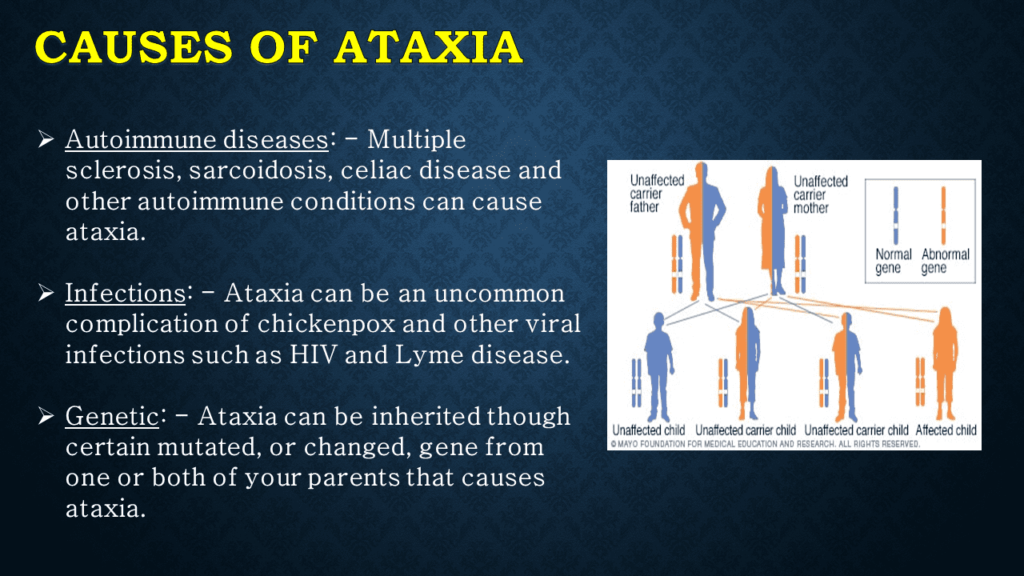

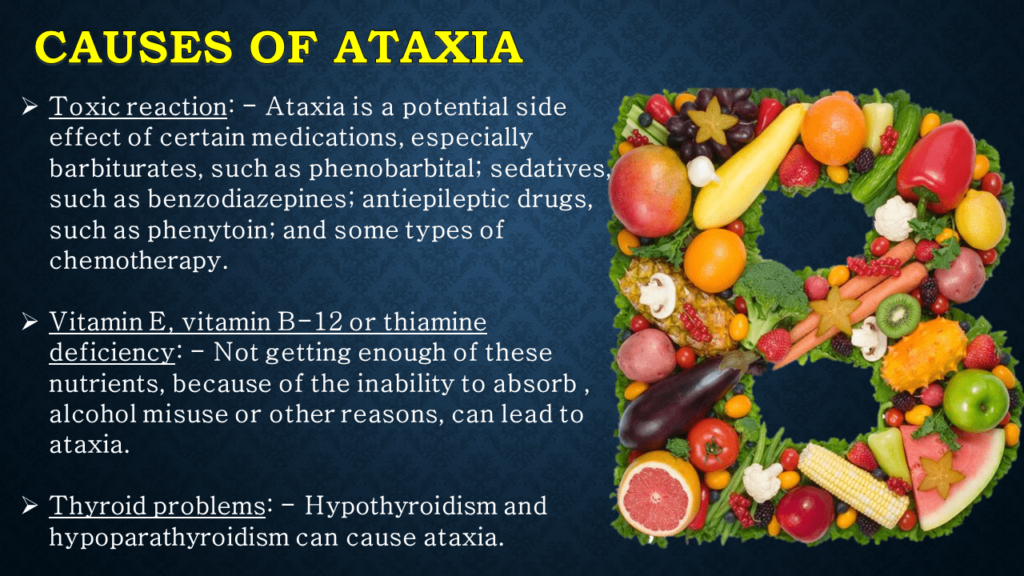

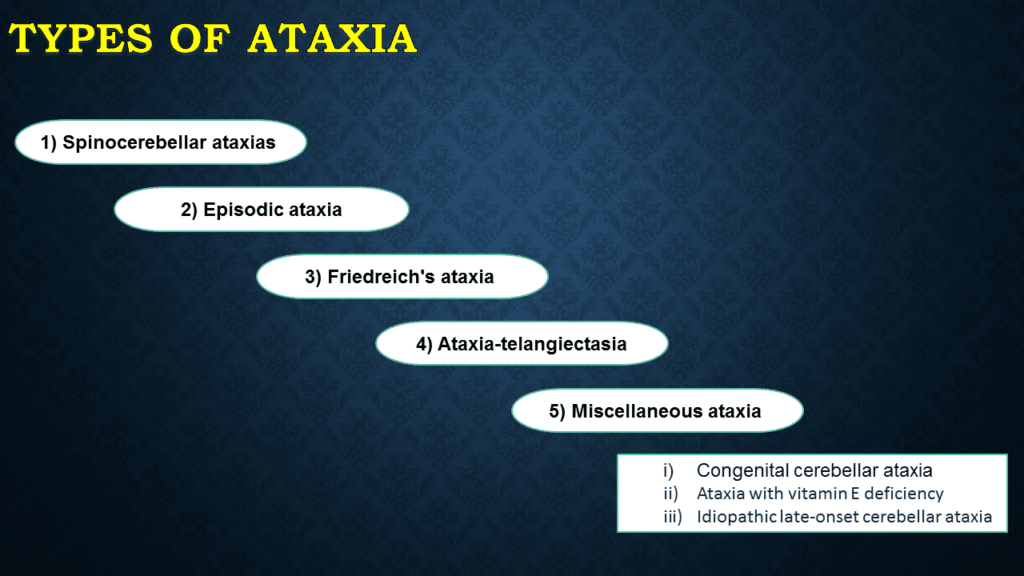

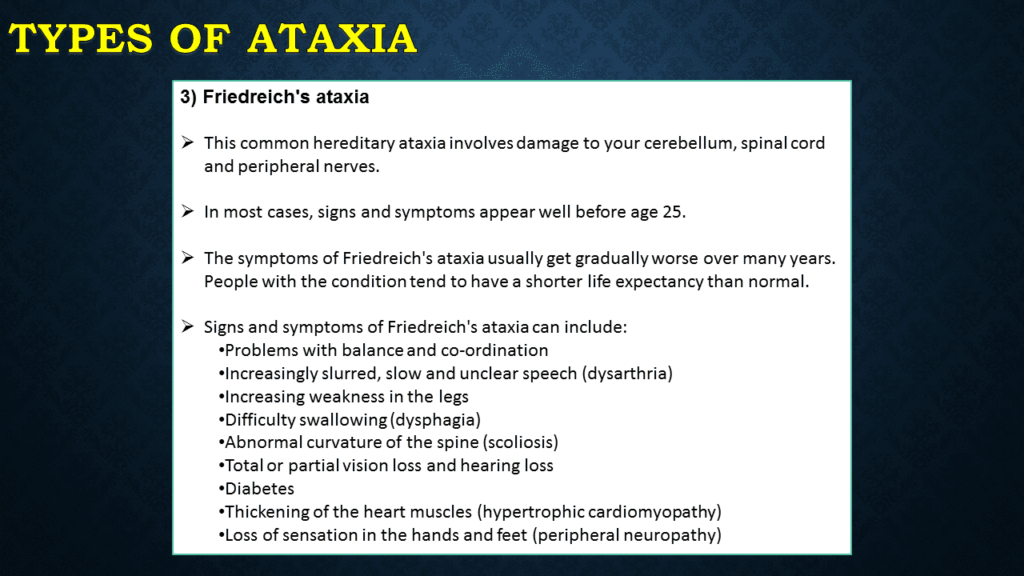
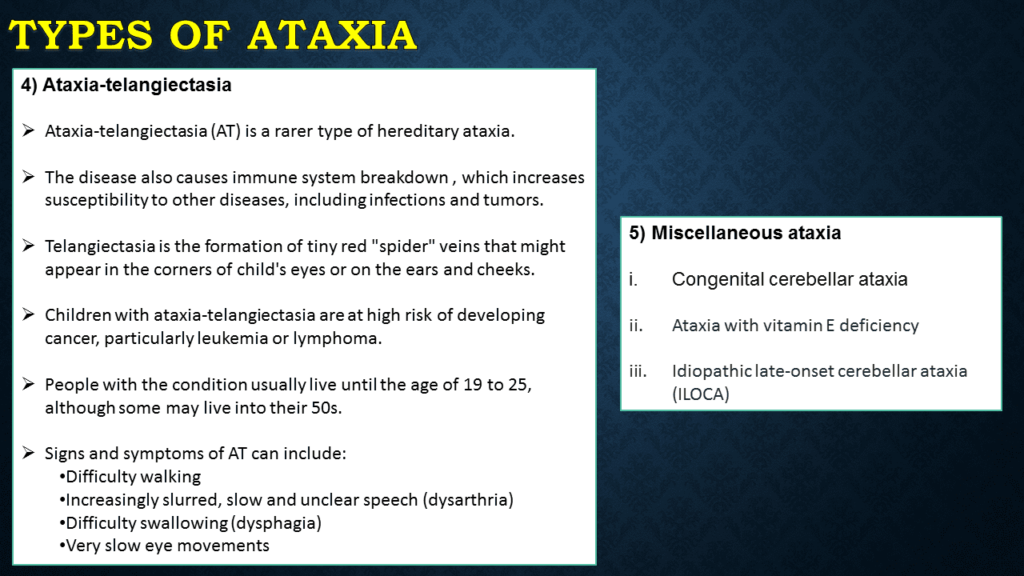
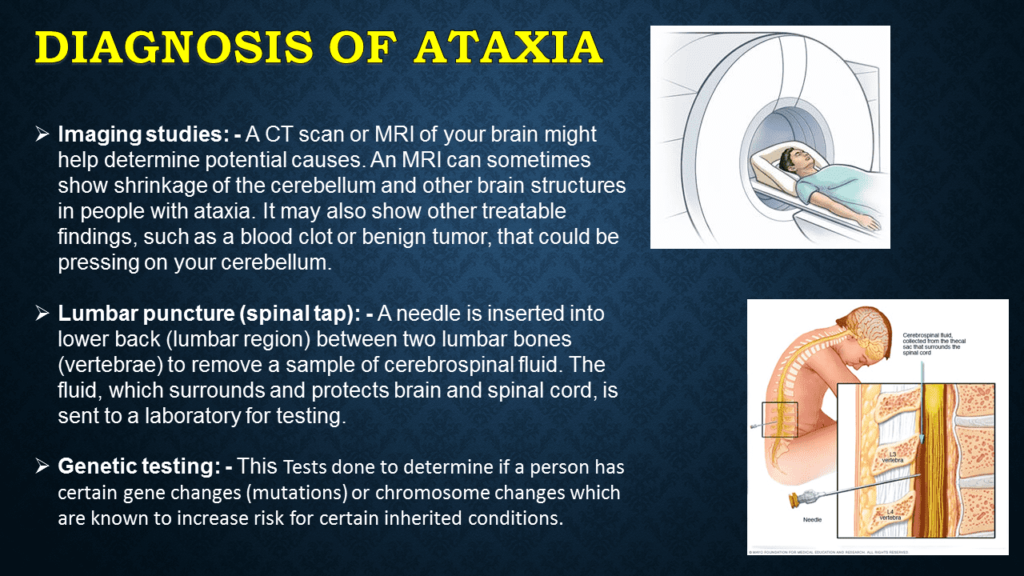

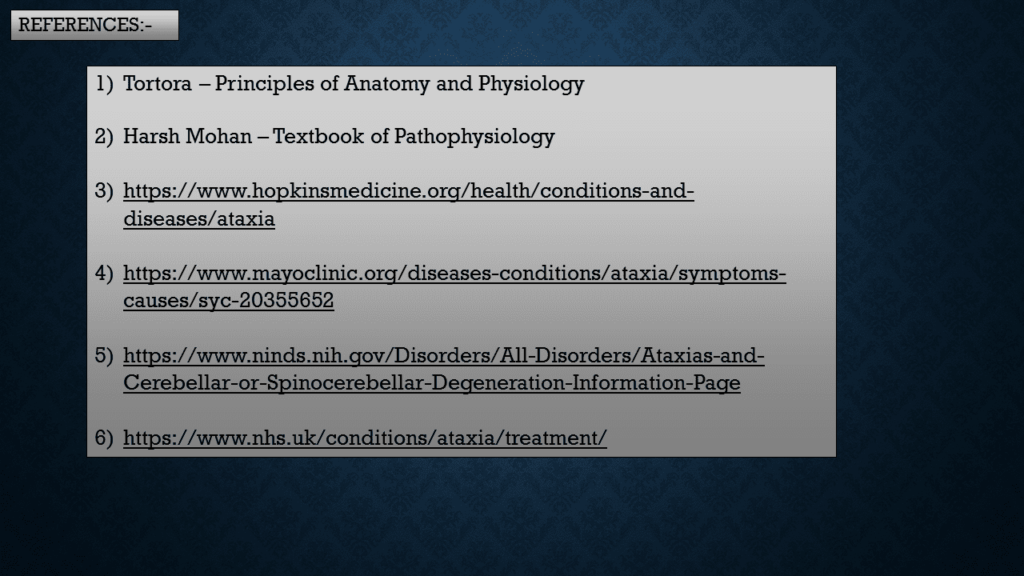
References:
- Hereditary Ataxia: Jayadev, S., & Bird, T. D. (2013). Hereditary ataxias: Overview. Genetics in Medicine, 15(9), 673-683. https://doi.org/10.1038/gim.2013.28
- Idiopathic Late-Onset Cerebellar Ataxia (ILOCA)
- Acquired Ataxia: Nachbauer W, Eigentler A, Boesch S. Acquired ataxias: the clinical spectrum, diagnosis and management. J Neurol. 2015 May;262(5):1385-93. doi: 10.1007/s00415-015-7685-8. Epub 2015 Mar 26. PMID: 25808499.
Search for a Neurologist in India
Neurologists in Mumbai
- Dr. Vrajesh Udani- Neurologist in Mumbai
- Dr. Zehra Husain- Neuro Surgeon at Saifee Hospital, Mumbai
- Dr. YOGESH PATIDA- Neurologist at Bhaktivedanta Hospital, Mumbai
- Dr. Vinod Rambal- Neuro Surgeon in Mumbai
- Dr. Viswanathan Iyer- Neuro Surgeon at Hiranandani Hospital, Mumbai
- Dr. VISHWANATHAN IYER- Neuro Surgeon at Kohinoor Hospital, Mumbai
- Dr. Vivek Agrawal- Neuro and Spine Surgeon at Sir H. N. Reliance Foundation Hospital, Mumbai
- DR. VINAY S. CHAUHAN- Neurologist at Lilavati Hospital, Mumbai
- Dr. Virendra Manek- Neuro Surgeon at Bhaktivedanta Hospital, Mumbai
- DR. VISHAL KUNDNANI- Spine Surgeon in Mumbai
- DR. VENKATA RAMAKRISHNA T- Spine Surgeon at Yashoda Hospitals, Secunderabad
- Dr. Vikas Gupte- Neuro & Spine Surgeon at Fortis Hospital, Mumbai
- Dr. Vibhor Pardesani- Neurologist at Wockhardt Hospital, Mumbai
- Dr. V J Laheri- Spine Surgeon at Hiranandani Hospital, Mumbai
- DR. VAMSI KRISHNA VARMA PENUMATSA- Spine Surgeon at Yashoda Hospitals, Secunderabad
Neurological Disorders
- How Cerebral Hypoxia can lead to brain damage?
- Bipolar Disorder
- Mononeuropathy
- Poliomyelitis
- Neurodegenerative disorders
- Huntington’s disease (HD)
- Cerebral edema
- Migraine
- Brain Hemorrhage
- Epilepsy
- Polyneuropathy
- Encephalitis
- Increased Intracranial Pressure
- Types of Brain Tumors You Should Know About
- Brain Stroke: Symptoms, Diagnosis and Treatment

